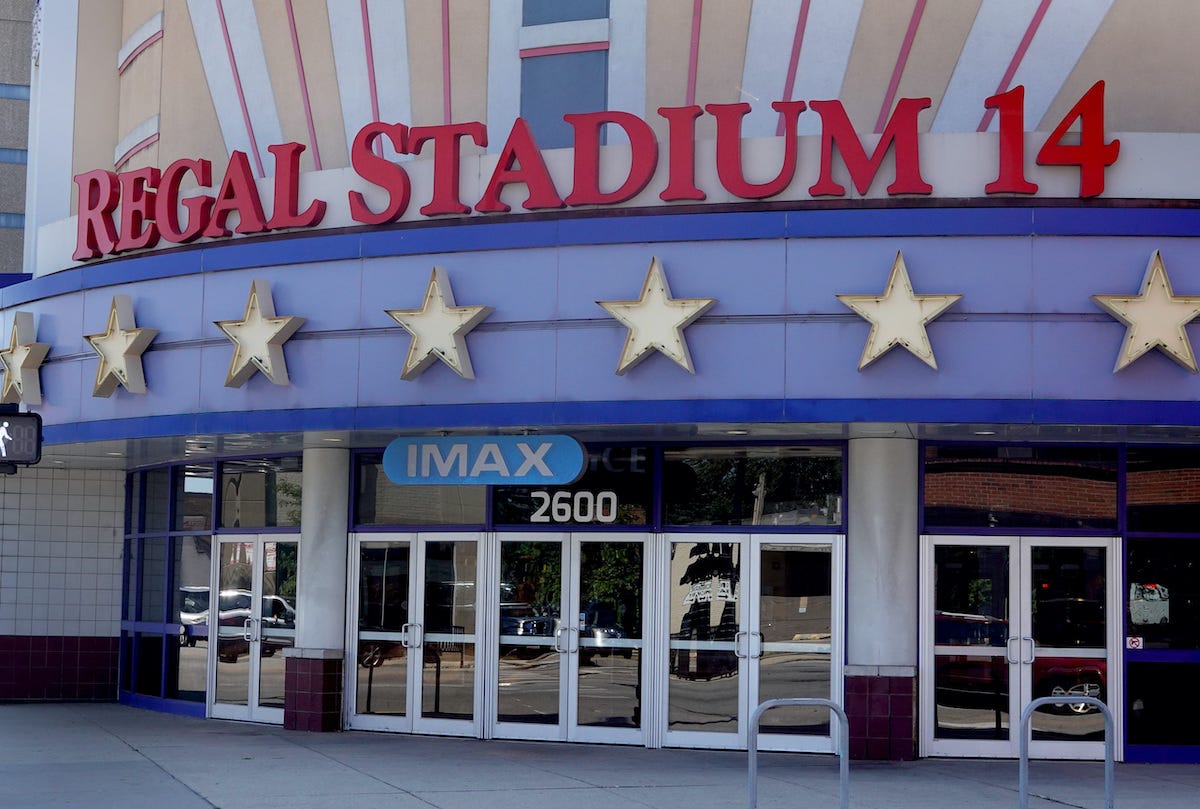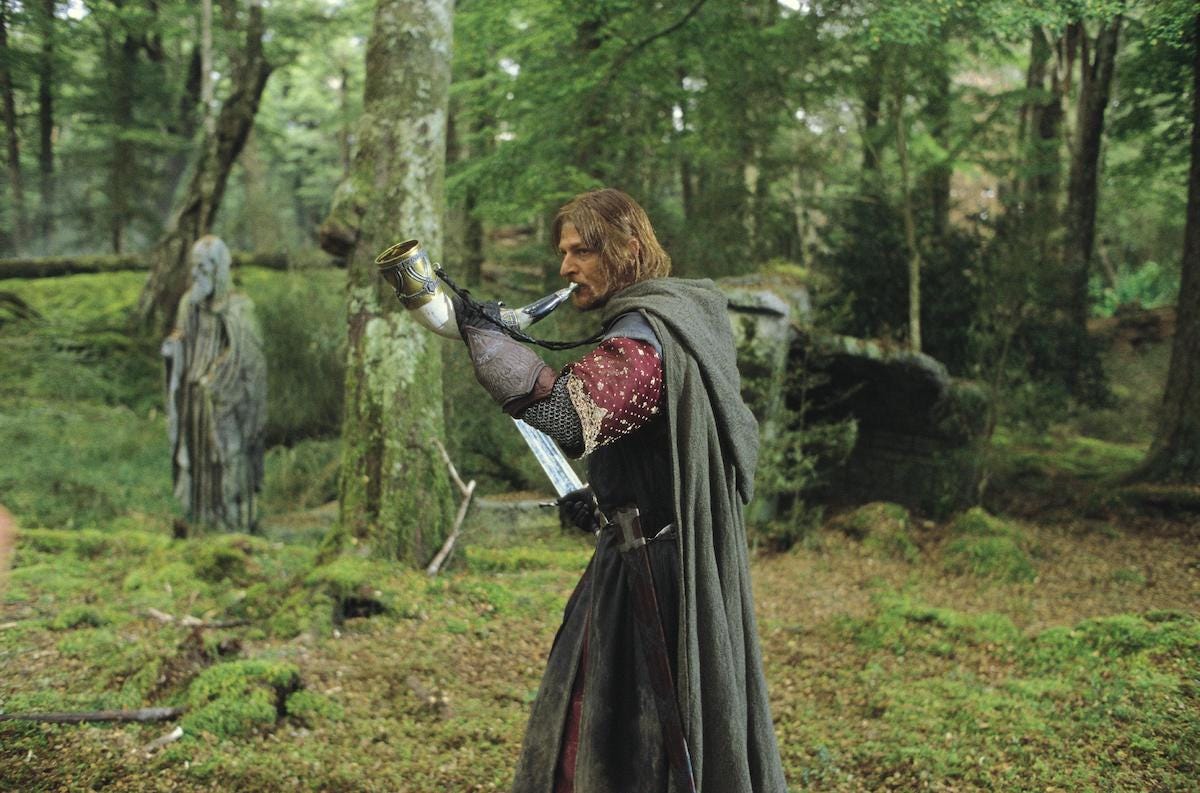Regal Cinemas is the second-biggest theater circuit in the United States, operating 505 theaters in 42 states for a total 6,787 screens. It is owned by the British company Cineworld, which counts nearly 9,200 screens worldwide at over 750 theaters. The company employs roughly 28,000 people around the world.
And, as of this week, Cineworld had about $4 million, with an M, cash on hand.
Like some other theater chains, notably the Alamo Drafthouse, Cineworld has filed for bankruptcy in the face of Covid-related setbacks. Things are less dire than they were but more dire than hoped for: 2020 and 2021 were horrible years, but 2022 hasn’t seen as steady a recovery as hoped and a consistent lack of product from studios over the last couple of months finally sent the company over the edge.
Regal, which I’ve always had a soft spot for as the first theater with stadium seating relatively close to my home growing up, isn’t likely to disappear in the immediate future. But the bankruptcy filings demonstrate just how precarious the business is for exhibitors, in large part because the theater companies actually own very little.
They don’t own the movies; they license them from the studios. Which is why some of the biggest creditors are the studios themselves. As Jill Goldsmith at Deadline reports, Cineworld owes Lionsgate $15 million, Universal $20.4 million, Walt Disney $14 million, Warner Bros. $7.6 million, Sony $3.2 million, and IMAX $11 million.
Theater companies also often don’t own the actual theaters. They’re typically leased, either as the anchors of shopping centers or as part of a mall. And as we learned in the bankruptcy hearing, Regal has about 500 leases in the U.S. totaling about $60 million in monthly rent. Those rents didn’t get paid last month.
All of which is to say that the reason theater owners and lovers of the theatrical experience looked at August and September with dread is because theaters depend on a relatively steady infusion of cash via ticket and popcorn sales to keep the lights on. And perhaps it helps folks understand why AMC bought a gold mine after their infusion of cash via the meme stock phenomenon of 2021. On the one hand, it doesn’t seem like a natural fit for a movie theater company. On the other: at least it’s something they can own and rely on if the flow of movies slows again.
Because it’s not like gold mines ever dry up, right?
If you’ve ever wanted to understand the business of book selling, you need to listen to this week’s BGTH with Eric Nelson. Informative from start to finish, I guarantee.
Links!
This week I reviewed Barbarian, a movie that you should see before you read reviews. I’m telling you to go see it, that’s the review, go see it and then come back and read my review. Or read the first part of my review to see if it’s your general cup of tea and then go see it and then read the second part of my review. Either way.
On Across the Movie Aisle this week we discussed Three Thousand Years of Longing and wrapped up the summer movie season. Make sure to check out our special bonus episode on the work of Idris Elba and Tilda Swinton, two of our most interesting actors.
Make sure to read Bill Ryan’s essay on the books of Jay Cronley. Or, rather, the books of Jay Cronley that became the movies Funny Farm, Let It Ride, and Quick Change.
The Entertainment Strategy Guy’s breakdown of the American media consumer is fascinating. I don’t know what a streaming service aimed at the religious would look like, exactly—Pure Flix already exists; as a heathen I have no idea what’s on it or who is watching it—but it definitely feels like an under-explored market in an age of niches.
The arrival of Wall*E to the Criterion Collection feels like a big-ish deal, at least in terms of potentially expanding the titles available for canonization by Criterion. Hopefully Disney throws both their and 20th Century Fox’s vaults open to the folks at the boutique physical media purveyor.
Assigned Viewing: The Lord of the Rings: The Fellowship of the Ring (HBO Max and Prime Video)
I’m half-heartedly watching the new Lord of the Rings show on Prime Video (it’s fine), but it’s mostly just making me want to revisit The Fellowship of the Ring. That flick remains the best of the Peter Jackson adaptations, in large part because it concludes with the most personal—and therefore, most relatable—big fight in the series. Boromir’s desperate defense of the hobbits and Aragorn’s facing down the Uruk-hai hordes remain the absolute emotional peak of the series in addition to being the best-shot and best-edited of all the major battles. Just top-tier big-budget filmmaking.






If Criterion can bring Wall-E to their collection from Disney then maybe they can bring True Lies and The Abyss? One can hope.
I guess for Regal it could have been worse. The major chain theater my son used to work at celebrated National Theater Day by dealing with a 100 person fight that started in the lobby and spread into the parking lot. Police from 4 different areas had to be called in to quell it. I doubt they sell $3 dollar tickets next year.